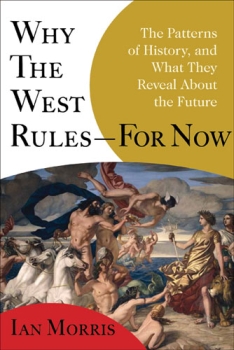- HOME
- INTRO TO THE FORUM
- USE AND MISUSE
- BADLY WRITTEN, BADLY SPOKEN
- GETTING
TO KNOW ENGLISH - PREPARING FOR ENGLISH PROFICIENCY TESTS
- GOING DEEPER INTO ENGLISH
- YOU ASKED ME THIS QUESTION
- EDUCATION AND TEACHING FORUM
- ADVICE AND DISSENT
- MY MEDIA ENGLISH WATCH
- STUDENTS' SOUNDING BOARD
- LANGUAGE HUMOR AT ITS FINEST
- THE LOUNGE
- NOTABLE WORKS BY OUR VERY OWN
- ESSAYS BY JOSE CARILLO
- A Unified Approach To The Proper Use Of Punctuation In English - III
- Steeling Ourselves Against Common Subject-Verb Disagreement Pitfalls
- The Appropriate Way To Position Subordinate Clauses And Phrases
- Please Don’t Wish Me ‘More Power!’
- Let’s Say Goodbye To Those Irritating English Clichés
- Some Guideposts For Positioning Adjectives In English Sentences
- ABOUT JOSE CARILLO
- READINGS ABOUT LANGUAGE
- TIME OUT FROM ENGLISH GRAMMAR
- NEWS AND COMMENTARY
- BOOKSHOP
- ARCHIVES
TIME OUT FROM ENGLISH GRAMMAR
This section features wide-ranging, thought-provoking articles in English on any subject under the sun. Its objective is to present new, mind-changing ideas as well as to show to serious students of English how the various tools of the language can be felicitously harnessed to report a momentous or life-changing finding or event, to espouse or oppose an idea, or to express a deeply felt view about the world around us.
The outstanding English-language expositions to be featured here will mostly be presented through links to the websites that carry them. To put a particular work in better context, links to critiques, biographical sketches, and various other material about the author and his or her works will usually be also provided.
“Location, location” is the key to the West’s world dominance
Why has the West been dominant over the rest of the world during the last 500 years?
Hundreds of historians have attempted to explain this intriguing development in many volumes, but Ian Morris, a classical archaeologist and expert in ancient history, has come up with a new, bold, and highly engaging explanation that Harvard University history professor Niall Ferguson has described as the “nearest thing to a unified field theory of history we are ever likely to get.” In the newly released book Why the West Rules—For Now: The Patterns of History, and What They Reveal About the Future (McClelland & Stewart, 768 pages), Morris argues that the West’s global hegemony is due largely to geographical good fortune.

“Humans may all be much the same, wherever we find them, but the places we find them in are not,” Morris explains his theory in “Latitudes not Attitudes: How Geography Explains History,” an essay he wrote for the October 20, 2010 issue of History Today. “Geography is unfair and can make all the difference in the world.” But he qualifies that while geography shapes history, it does so not in straightforward ways: “Geography does determine why societies in some parts of the world develop so much faster than others; but, at the same time, the level to which societies have developed determines what geography means.”
Many noted historians have hailed Morris’s Why the West Rules—For Now for the boldness of its vision and the depth of its research. One of them, Anthony Pagden, author of Worlds and War: The 2,500-Year Struggle Between East and West, says of Why the West Rules: “Ian Morris has returned history to the position it once held: no longer a series of dusty debates, nor simple stories—although he has many stories to tell and tells them brilliantly—but a true magister vitae, ‘teacher of life’... His vision is dazzling, and his prose irresistible.”
Read Ian Morris’s “Latitudes not Attitudes” in History Today now!
Read an excerpt of Read Ian Morris’s “Latitudes not Attitudes” now!
ABOUT THE AUTHOR:
Ian Morris is Willard Professor of Classics and History at Stanford University. He has published ten scholarly books, among them The Dynamics of Ancient Empires. He has directed archeological excavations in Greece and Italy, and has been awarded fellowships from the Guggenheim Foundation, National Endowment for the Humanities, Center for Hellenic Studies in Washington, D.C., and Institute for Research in the Humanities, University of Wisconsin-Madison.
RELATED READING ON HISTORY:
In “Abraham’s Progeny, and Their Texts,” an article he wrote for the October 22, 2010 issue of The New York Times, Edward Rothstein describes the current “Three Faiths: Judaism, Christianity, Islam” exhibition at the New York Public Library as “stunning” in sweep. He says that the exhibits of religious books, artworks, and images show that the three Abrahamic religions share a lot of common: “Each believes that God has made himself known to his prophets through acts of revelation. And such revelations shape groups of believers by being incorporated in canonical written texts: the Hebrew Bible, the Christian Gospels, the Islamic Koran.”
Read Edward Rothstein’s “Abraham’s Progeny, and Their Texts” in The New York Times now!






